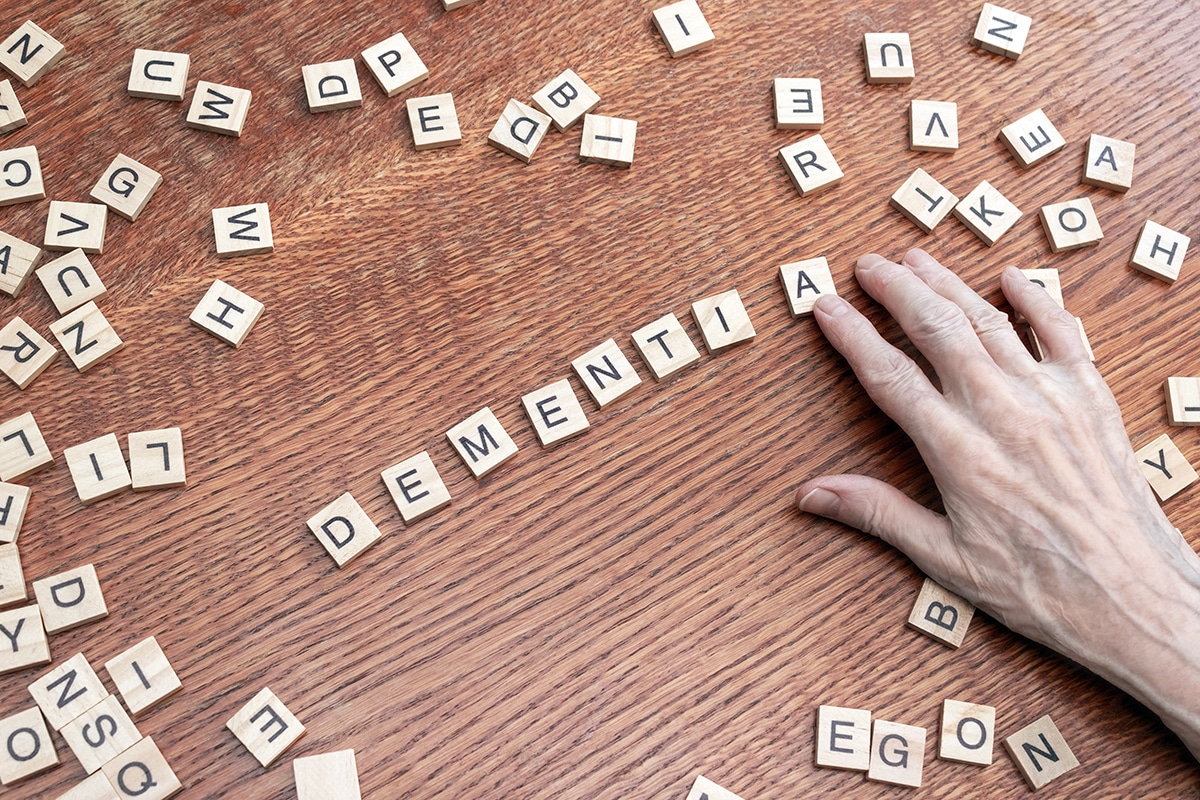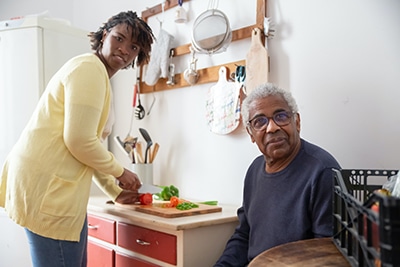Caring for a loved one with dementia presents unique challenges, but it can also be an incredibly rewarding journey filled with love, growth, and deep connection. Are you ready to embark on this adventure? Let us guide you through the essential caregiver tips for dementia that will empower you in providing the best care for your loved one while maintaining your own well-being.
In this blog post, we will explore the fundamentals of dementia, share practical tips on creating a safe and comfortable environment, and discuss effective communication strategies. We will also delve into managing behavioral changes, encouraging independence, and addressing nutritional needs. Additionally, we will touch on coping with sundowning, caregiver self-care, planning for the future, and navigating legal and financial matters. Let’s start this journey together!
Understanding Dementia: The Basics
Dementia is a progressive and degenerative brain disease that affects memory, thinking, behavior, and the ability to carry out daily tasks. The most common forms of dementia include Alzheimer’s and related dementia, such as:
- Vascular dementia
- Lewy body dementia
- Frontotemporal dementia
- Mixed dementia
Upon a dementia diagnosis, comprehending the symptoms and disease progression becomes pivotal in delivering optimal care for your loved one, as dementia presents unique challenges. The Alzheimer’s Association can provide valuable resources and support during this challenging time.
Dementia caregiving involves continuous learning and adapting as the disease progresses. Recognizing the signs of dementia in a person with Alzheimer’s, who is also a person with dementia, such as:
- memory loss
- confusion
- disorientation
- changes in personality
Gaining knowledge about dementia will enable you to understand and empathize with your loved one’s dementia journey. With this knowledge, you, as family members, can provide better support and make informed decisions about their care.
Creating a Safe and Comfortable Environment
Creating a safe and comfortable environment for your loved one with dementia is of utmost importance. We will delve into crucial aspects of home safety next, including fall prevention, optimal lighting, and living space adaptation.
We will now delve into these integral components of a dementia-friendly home, considering the importance of in home care.
Preventing Falls
Falls are a significant concern for dementia patients due to problems with mobility, balance, and strength, as well as impaired judgment and sensory perception. Environmental factors like poor lighting, slippery floors, and inappropriate footwear can also contribute to falls. An organized and tidy living space is key to preventing falls. Here are some steps you can take:
- Remove any items on the floor or stairs, such as books, papers, clothes, or shoes.
- Make sure that carpets are fixed firmly to the floor.
- Remove any throw rugs or cords that can create tripping hazards.
By following these steps, you can help create a safer environment for dementia patients and reduce the risk of falls. Grab bars can be a lifesaver for dementia patients when installed in strategic locations, such as in the shower or bathtub, on stairs, and beside the bed. Ensure that the grab bars are securely attached to studs for the best stability and safety. Providing nutritious foods can also help maintain overall health and strength, reducing the risk of falls.
Ensuring Proper Lighting
Appropriate lighting is essential in alleviating confusion and disorientation among dementia patients. Changes in perception can cause fear and confusion when lighting is insufficient or when shadows are present. Adequate lighting, especially at night, can make a significant difference in reducing these symptoms.
To ensure the best lighting for people with dementia, including Lewy body dementia, utilize a range of artificial lights to reduce glare, implement bright light therapy, and use light fixtures with good color rendering. Make sure all areas of the home have enough lighting and eliminate any dark, shadowy areas that may cause confusion or fear.
Consider adding sensor lighting to reduce the risk of falls at night, as it can detect movement and turn on the lights automatically, creating a safe and well-lit environment for dementia patients.
Adapting Living Spaces
Modifying living spaces to meet the needs of dementia patients is crucial for their safety and comfort. Clear pathways and easy-to-navigate furniture arrangements can promote mobility and independence for your loved one.
To ensure clear pathways in a home for someone living with dementia, you can:
- Clear out any obstacles and clutter that may be blocking the walking paths
- Rearrange furniture if needed to make the pathways more visible and wide
- Use contrasting colors for furniture and objects to make them easier to see
- Ensure adequate lighting throughout the home to provide a familiar environment for dementia patients to navigate safely and comfortably.
Effective Communication Strategies
Effective communication is fundamental in delivering optimal care for your loved one with dementia. As dementia progresses, communication challenges may arise, such as difficulty finding words, losing train of thought, and increased hand gestures. Implementing effective communication strategies can help you better understand and connect with your loved one.
To improve communication with dementia patients, follow these tips:
- Be patient and understanding
- Speak slowly and clearly
- Give one direction or ask one question at a time
- Use short sentences
- Avoid questions that challenge short-term memory
- Always maintain respect and be aware of their body language
- Encourage social interaction
- Make them feel safe and secure
Following these tips can significantly improve communication with dementia patients.
Managing Behavioral Changes
Although managing behavioral changes in dementia patients is challenging, comprehending the triggers and maintaining flexibility can yield remarkable results. A dementia patient may display the following behaviors:
- Aggressiveness
- Wandering
- Hallucinations
- Difficulties with eating or sleeping
Recognizing the triggers behind these behaviors is crucial for addressing them effectively. Being proactive in your approach, rather than reactive, is essential for caregivers of dementia patients. Anxiety, boredom, fear, or environmental factors can trigger repetitive speech or actions in dementia patients. When dealing with paranoia, remaining calm and reassuring without arguing or disagreeing can help alleviate the situation. Understanding the purpose and triggers behind troubling behavior can make it easier to manage behavioral changes in dementia patients.
Encouraging Independence and Engagement
Fostering independence and engagement in dementia patients is essential for their overall well-being. Involving them in everyday tasks that they can still perform provides a sense of purpose and accomplishment. Engage your loved one in activities that stimulate different senses and movement, such as:
- singing songs
- telling stories
- dancing
- walking
- tactile activities like painting, gardening, or playing with pets
Fostering independence and engagement in dementia patients, as suggested by the National Institute on Aging, can significantly enhance their own life quality and maintain their sense of self.
Nutritional Needs and Mealtime Assistance
Attending to the nutritional needs of dementia patients is paramount for their overall health. Dementia patients may face challenges during mealtime, such as:
- spatial awareness
- vision
- attention
- temperature tolerances
Providing mealtime assistance can ensure they maintain a healthy diet and enjoy their meals.
To support dementia patients during mealtime, you can:
- Provide meals in a familiar place, way, and time
- Offer foods they are familiar with and like
- Make the food stand out from the plate
- Assess the food temperature before serving
- Encourage and assist them to feed themselves when possible
- Create a pleasant setting for eating
Ensuring the eating area is quiet and distraction-free can significantly improve the mealtime experience for dementia patients.
Coping with Sundowning and Sleep Issues
Dealing with sundowning and sleep issues in dementia patients can be demanding. Sundowning is characterized by restlessness, agitation, and disorientation that can be especially heightened at the end of the day and continue throughout the night. Maintaining a consistent routine and providing a calming environment can help alleviate these symptoms.
To manage sundowning in dementia patients, you can:
- Identify and minimize potential triggers for sundowning
- Establish routines and structured activities
- Modify the sleep environment to ensure restful sleep
- Create a calm and soothing atmosphere
- Limit stimulation in the late afternoon and evening
These strategies can help manage sundowning in dementia patients.
By understanding sundowning and implementing effective strategies, you can help your loved one cope with this challenging behavior.
Caregiver Self-Care and Support
As a caregiver, focusing on your self-care and reaching out for support is crucial to maintain your well-being and deliver top-notch care for your loved one with dementia. Caring for a person can put you in a vulnerable position to face serious health issues, such as depression, stress, or even burnout. Embracing the caregiving journey with a strong support system, including family caregivers, can make a significant difference in your overall experience when caring for someone.
To ensure you can take care of your loved one and yourself, here are some strategies to consider:
- Make time for your own care
- Join support groups
- Utilize strategies that can benefit both you and the person you are caring for
- Seek support from professionals, the Family Caregiver Alliance, and respite care services to help you manage the challenges of dementia caregiving
Remember, you are not alone, and asking for help is not a sign of weakness but a sign of strength.
Planning for the Future
Future planning becomes indispensable when caring for a loved one with dementia. Discussing healthcare directives, long-term care options, and end-of-life decisions with your loved one and their healthcare team can ensure that they receive the best possible care throughout their journey with dementia. Incorporating decision making into these discussions is crucial for a well-rounded approach.
Seeking professional legal advice early on is highly recommended to ensure that all necessary documents, such as power of attorney and advance directives, are in place for the future. By planning ahead, you can provide peace of mind for both you and your loved one, knowing that their needs and preferences will be respected and honored.
Navigating Legal and Financial Matters
Dealing with legal and financial matters forms a crucial part of caregiving for someone with dementia. Understanding the financial implications of dementia care, such as the staggering $750,000 cumulative direct and indirect expenses, can help you prepare for the future.
Seek professional advice and prepare necessary documents, such as power of attorney and advance directives, to ensure that your loved one’s legal and financial matters are taken care of. Utilize financial resources like Medicare, SSDI, and SSI to help cover the costs of care and alleviate some of the financial burden associated with dementia caregiving.
Summary
Throughout this blog post, we have explored the essential caregiver tips for dementia patients, from understanding dementia to navigating legal and financial matters. By implementing these strategies and prioritizing self-care, you can provide the best care for your loved one while maintaining your own well-being.
Remember that you are not alone in this journey, and there is support available for both you and your loved one with dementia. Stay strong, resilient, and compassionate, and together, we can make a difference in the lives of those affected by dementia.
Frequently Asked Questions
What is the best advice for dementia caregivers?
Respect the person’s personal space, build quiet times into the day, and use well-loved objects and photographs to help with security. Be open to new ways of interacting, avoid agitation, stress, and conflict. Recognize dangerous situations, and proactively seek help when needed.
What are coping skills for dementia patients?
Remain engaged and active, perform difficult tasks during times of peak alertness, and keep an active social life with regular exercise. Doing activities the person enjoys or finding new ones can also help reduce out-of-character behaviours. Provide reassurance to help them cope with dementia.
What are the three golden rules of dementia?
Remember the 3 Golden Rules of dementia care: Don’t ask direct questions, listen to the expert and don’t contradict. Practicing these rules will help ensure a positive experience for those living with dementia.
What to avoid when caring dementia patients?
When caring for dementia patients, be mindful to focus on the present and avoid asking them too many open-ended questions from the past, as it could be overwhelming if they can’t remember the answer.
What are the 4 R’s of dementia care?
The 4 R’s of dementia care are Reassure, Reconsider, Redirect, and Relax, which focus on individual care and provide essential elements for providing effective elderly caregiving. This approach is widely recognized to provide improved outcomes for those with dementia and their caregivers.





